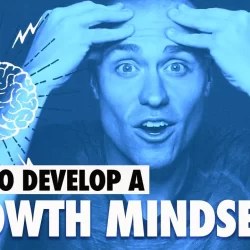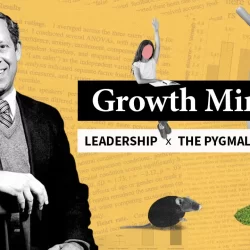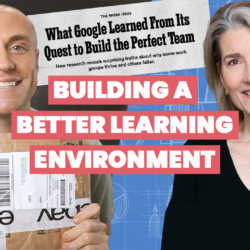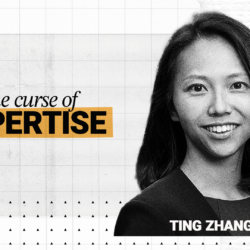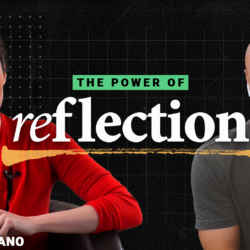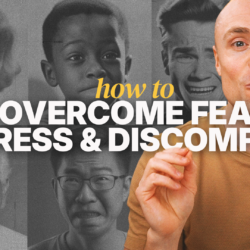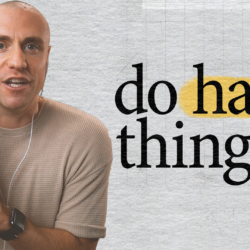written by: Trevor Ragan
Learning is the Wild Card
It’s game night. Snacks out, friends sitting around the table, cards shuffled. The deal begins. You peek at the first card – 5♦. Not much to work with. The next – 7♣. Then 4♠. Then 8♥. So far this hand is a dud – low cards, no pairs.
Then comes the final card. You peel up the corner, take a peek, it’s the joker – the wild card.
Suddenly, everything changes.
You can make the wild card into a six. And just like that, your busted hand becomes a winning straight. One card turns a losing hand into a winning one.
That’s what learning is. It’s the wild card. It helps in every hand, in every game, in every situation. No matter what life deals us, learning gives us options.
Some people think learning is just for school or only matters for elite performers. But the truth is, learning is for everyone, in every context. It’s what helps us solve problems, adapt to change, and improve our lives – no matter where we start or what challenges we face.
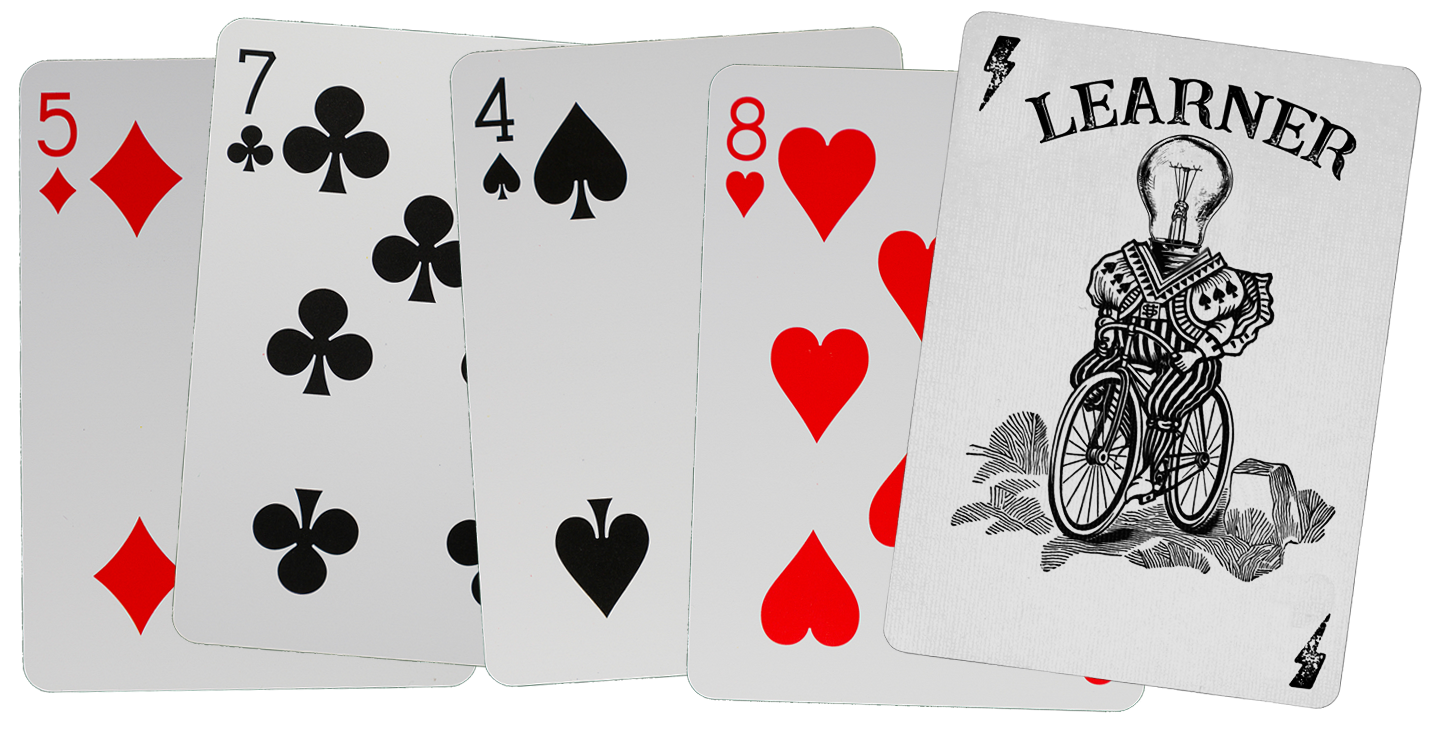
Learning Is More Important Than Ever
For centuries, being a knower was enough. You learned a trade, mastered a skill, and did it for life. The blacksmith, the tailor, the banker – each one a knower, each one secure in their place.
Not anymore.
The world is changing and it’s changing fast. Technology is reshaping industries. Automation is replacing repetitive tasks. Information is limitless. What worked yesterday might be obsolete next year. The job we trained for at 22 might not exist at 42. The age of knowing is over. The safety of a single skill is gone.
“In times of change, learners inherit the earth, while the learned find themselves beautifully equipped to deal with a world that no longer exists.” – Eric Hoffer
Now, we don’t need knowers. We need learners.
Learners adapt. Learners evolve. Learners don’t cling to what they once knew – they seek out what they need to know next.
A knower gets good at something and holds onto it. The knower seeks stability and avoids change and discomfort. The learner builds adaptability.
Taxi drivers dismissed ride-sharing – now Uber dominates. Blockbuster ignored streaming – Netflix took over. Kodak clung to film – while digital cameras reshaped photography.
But it’s not just big business.
The coworker who refuses to learn new tools gets passed up for promotions. The restaurant that never updates its menu slowly loses customers. The grandparent who never learns to video call sees their family less.
The world keeps moving – those who learn, keep up.
Ignore change, and we risk falling behind. Learn, and we stay in the game.
Learning Builds Resilience
Some think resilience is an internal trait – you either have it or you don’t. But resilience researcher George Bonanno found that real resilience is more about flexibility. It’s about trying one thing, seeing if it works, and adjusting if it doesn’t. It’s a process, not a trait.
And what fuels that process? Trial and error and experimentation. Learning.
The company shifts direction. Some people resist, hoping things stay the same. Others learn – new tools, new strategies, new ways to contribute. The ones who keep learning stay valuable and find new opportunities.
A relationship hits turbulence. One person shuts down, convinced things won’t change. The other sees an opportunity to make upgrades – better communication, better listening, better understanding. One gets stuck. The other grows.
When we’re hit with a setback, the people who recover best are the ones who learn and experiment their way through it.
Learning is the Answer
When things change, we have two choices: ignore it or learn.
Ignoring is easy. Pretending it’s not happening, hoping things go back to the way they were. But that doesn’t stop the change. It just leaves us unprepared.
Learning, on the other hand, gives us options. It turns uncertainty into possibility. It gives us the ability to not just survive change, but to use it – to turn a difficult hand into something playable.
In a card game, getting the wild card is mostly luck. We either get dealt one or we don’t. But in life, learning is the one wild card we control. It’s a skill we can build and sharpen.
“Yes, some people are slower learners. But the machinery (in the brain) that controls learning is plastic – you can improve it… And the magic is that once you get into a learning mode. Once you’re really trying to improve yourself on a regular basis and acquiring new skills… you actually improve the machinery that controls learning for everything you’re trying to do. So it’s a really good idea to get into a learning mode.” – Dr. Michael Merzenich*
Every time we choose to learn, we strengthen that new skill and the skill of learning itself. We can all get better at getting better. Investing in the skill of learning makes it easier to adjust, to grow, and to solve problems that are thrown our way. Whether it’s figuring out a new technology, adapting to a new role, learning to cook a new dish, improving our health, or deepening our relationships, learning is always the answer.
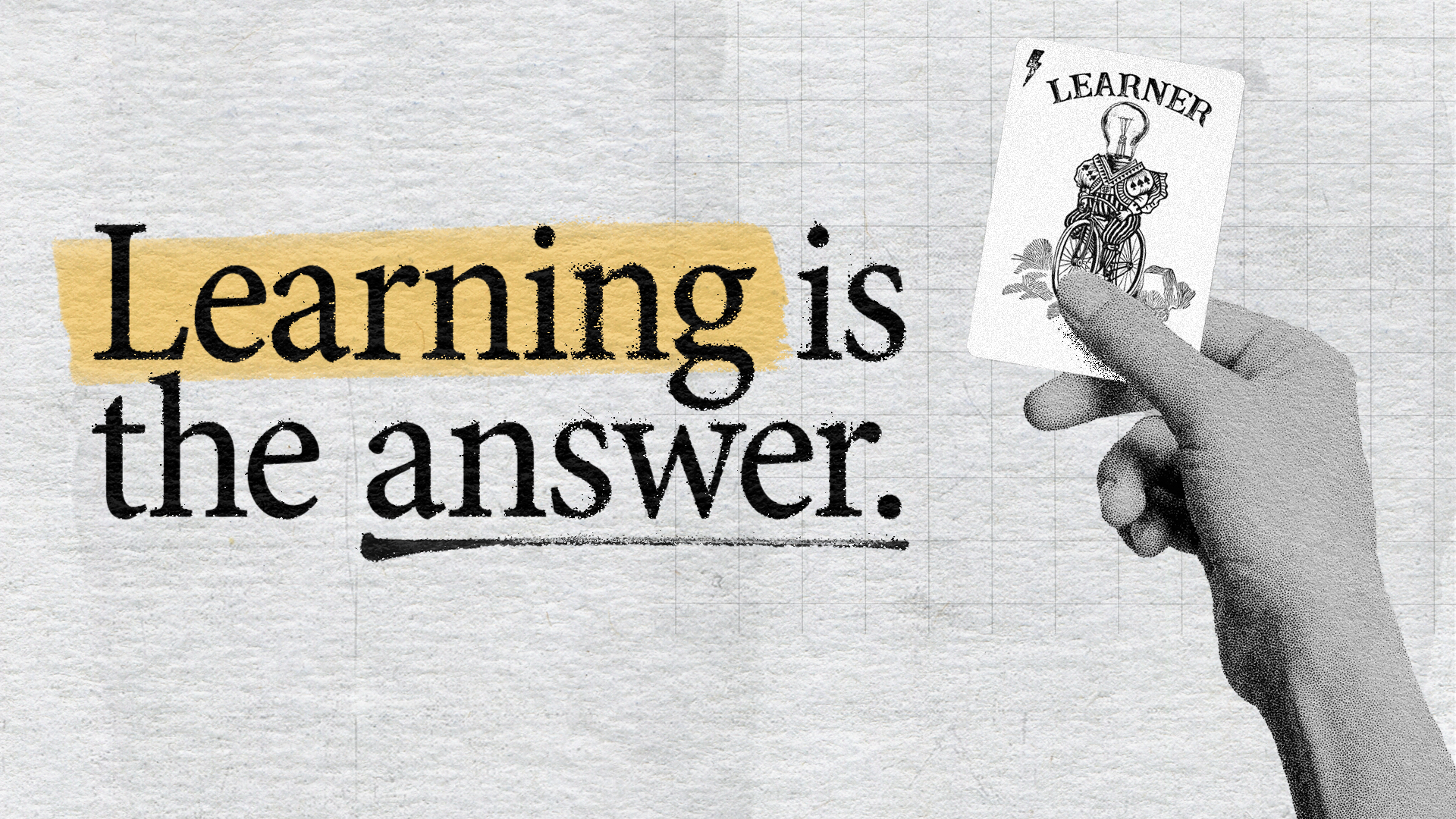
*Dr. Merzenich has published more than 150 articles in leading peer-reviewed journals (such as Science and Nature), and received numerous awards and prizes (including the Russ Prize, Ipsen Prize, Zülch Prize, Thomas Alva Edison Patent Award and Purkinje Medal). He has been granted nearly 100 patents, and he and his work have been highlighted in hundreds of books about the brain, learning, rehabilitation, and plasticity. In 2016, Dr. Merzenich was awarded one of the world’s top neuroscience prizes, the Kavli Prize, for his achievements in the field of brain plasticity.

